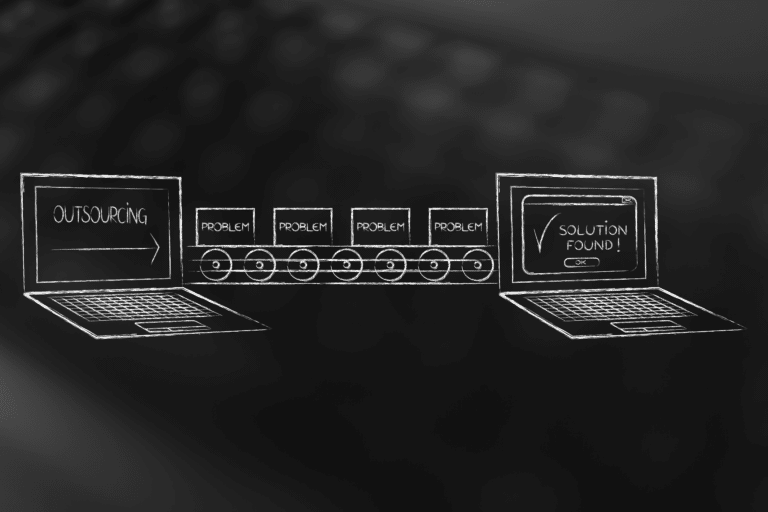Do’s and Don’ts of Managing a Remote PHP Development Team
Managing Remote PHP Development Teams comes with its own unique set of challenges and rewards. Remote teams require more time and effort for communication, which you should strongly consider when deciding whether or not to manage a Remote PHP Development Team.
As a remote team manager, it’s essential to have an open-door policy and be available for any issues that may arise. One of the biggest do’s? Track progress on projects by setting measurable goals and sticking to regular check-ins with your team members.
When it comes to don’ts, micro-managing should be avoided; trust your team to handle their tasks and provide valuable feedback. With a balance of firm guidance and empowerment, Remote PHP Development Teams can be a great way to achieve desired goals effectively!
Concerns about Working with Remote Development Teams
Remote PHP Development Teams have become a popular option for many businesses, but there remain some valid concerns with this arrangement. It can be more challenging to ensure regular progress and verify that the development team is meeting project specifications.
Remote arrangements also make it challenging to ensure communication between coders, thus making it harder for them to cooperate and creating technical issues or misunderstandings that further slow down a project.
Additionally, suppose software bugs are discovered in the program. In that case, later on, troubleshooting to find the source may be much more time-consuming and more accessible than if coders were working in person.
Trust Issues
The most common concern when working with any remote team is trust. Building trust and ensuring that everyone is doing their part can be challenging when you cannot meet face-to-face with your team members regularly.
To help combat this issue, look for ways to keep in touch with your team members regularly — through video calls or messaging apps — so that you can stay up to date on project progress and build trusting relationships.
Communication Challenges
Another challenge of working with remote development teams is communication breakdowns. When everyone is in different places and has different schedules, it can take time to coordinate conversations and ensure that everyone is heard.
To help mitigate potential communication issues, create clear expectations from the start about how often each member should communicate and what methods should be used for communication (i.e., email, text messages, etc.).
Additionally, ensure everyone has access to the right tools for collaboration — such as project management software or task tracking tools — so they can stay connected even when they are miles apart.
Time Zone Differences
Finally, time zone differences can pose a challenge when working with remote development teams. Even if everyone is available at the same time during their respective workdays, it’s important to remember that there may still be differences in how quickly tasks are completed due to varying availability times throughout the day.
To ensure tasks are completed on time, consider setting realistic deadlines based on each member’s availability and providing ample opportunities for feedback throughout the project timeline.
Do’s of Managing a Remote PHP Development Team
Remote PHP development teams are an effective way to complete projects quickly and efficiently. But it is essential to keep the team organized and focused on task completion. To get the most out of your Remote PHP Development Team.
Here are a few do’s: organize daily check-ins, provide detailed feedback promptly, enforce clear deadlines and expectations, plan for trial and error explorations, and communicate amongst all involved parties throughout each process step.
1. Set Clear Expectations
Remote PHP Development Teams can be an excellent asset for projects, but one of the most important things to ensure success is setting clear expectations. Without mutual understanding, it’s easy for misunderstandings to arise, which could result in project delays and cost overruns – not ideal for anyone involved.
Make sure that you and your Remote Team have agreed upon specific goals, deadlines, and criteria for success from the outset of the project. Doing so will help guarantee that everyone is on the same page and streamline the process so the project can get completed without any issues!
2. Have Regular Team Meetings
Regular team meetings are essential for any Remote PHP Development Team to succeed. Whether the meetings are held once a week or once a month, these team meetings help to foster collaboration and communication between team members.
Additionally, they provide an opportunity to discuss any issues that may arise, brainstorm solutions in real-time, and share feedback on projects. Most importantly, regular team meetings also allow everyone on the Remote PHP Development Team to stay up-to-date on each others’ tasks and progress towards goals.
This makes it much easier for everyone involved to stay organized and productive while working remotely.
3. Set Up Group Chat Channels
Establishing group chat channels allows for fast communication between all team members when necessary and helps keep everyone up-to-date on any changes or updates related to the project.
This is especially helpful when working with multiple members located in different parts of the world, as it allows them to connect without coordinating schedules or time zones.
4. Monitor Progress
Monitoring progress regularly is essential when managing a remote development team since no physical presence allows you to keep tabs on what’s happening behind closed doors (or on laptops).
By monitoring progress regularly, you will be able to quickly identify any issues or areas where improvement can be made before it becomes too late or costly for your project timeline/budget.
Don’ts of Managing a Remote PHP Development Team 
The use of remote PHP development teams can be an efficient and effective solution to handle staffing demands quickly and benefit from knowledge from around the world. However, there are a few things managers should never do and always keep in mind.
1. Don’t Overload Team Members
Remote PHP development teams often need help getting projects done on time, significantly when understaffed. To remedy this, some folks try to throw more work onto the shoulders of existing team members in the hopes of meeting deadlines; however, this can be a huge mistake.
When a team member is overloaded with too many tasks, it can hurt their productivity and eventually lead to burnout. Remote teams should focus on using all resources wisely rather than overloading individuals who will quickly become overwhelmed and discouraged.
The key is finding a delicate balance between giving team members enough work to stay productive without pushing them beyond their capacity.
2 . Don’t Micromanage
Remote PHP Development Teams move quickly, and if you’re going to be successful, you need to avoid micromanaging. Remote teams already feel the pressure of tight deadlines, and it only gets worse when someone is watching over their every move. Instead, establish firm, realistic expectations regarding each project and provide feedback opportunely.
Time management skills are integral for setting timelines, and the team should take responsibility for managing any unavoidable delays or setbacks. Stay focused on details and what matters most to the project’s timeline and goals.
Remember, communicating is critical. Make sure your remote team understands their tasks well and what is expected of them so everyone can enjoy success with minimal issues.
3 . Don’t Overlook Communication
Effective communication between all parties involved in any project is essential. Still, even more so when working with virtual teams spread across multiple locations ––communication breakdowns can lead to significant problems if they are not identified early enough. Ensure that everyone stays connected through regular check-ins, group chats, emails, etc., so that communication remains open at all times.
4 . Don’t Forget About Security
Last but certainly not least, remember security! Working remotely requires proper security protocols, including secure web portals, VPN access, two-factor authentication, etc., so ensure these measures are taken before allowing external access points into your system/network.
Conclusion
Working remotely has become an increasingly common trend due to its convenience and cost savings benefits compared to traditional office settings. However, specific considerations must be considered when managing a remote PHP development team.
It includes setting clear expectations, having regular meetings, using group chat channels, monitoring progress regularly, avoiding overloading task lists, avoiding micromanagement tendencies, and, most importantly, remembering security protocols. If followed correctly, these tips will help ensure successful outcomes from your remote development endeavors!










